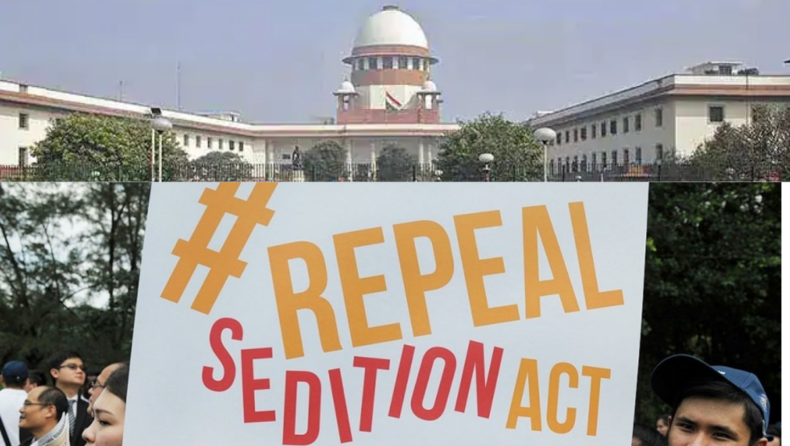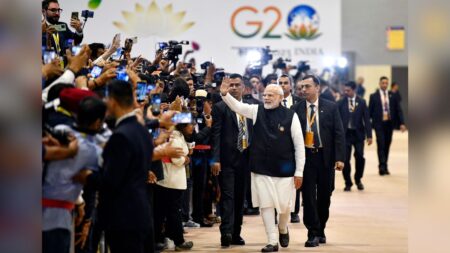The Union government has informed the Supreme Court that it intends to re-examine and reassess Section 124A of the Indian Penal Code, which deals with sedition and seditionary activities.
The government said in an affidavit submitted before the court that this move was in accordance with Prime Minister Narendra Modi’s objective to “shed colonial baggage” in the country’s 75th year of independence.
In light of the fact that the government intends to revisit the statute, the document urged that the Supreme Court refrain from taking up the case at this point in time.
According to Bar and Bench, the affidavit stated that “the Government of India, fully cognizant of the various views expressed on the subject of sedition and also having considered the concerns of civil liberties and human rights, while committed to maintaining and protecting the sovereignty and integrity of this great nation, has decided to reexamine and reconsider the provisions of Section 124A of the Indian Penal Code,” which can only be done before the competent forum.
The court was reviewing a slew of petitions that had been filed challenging the constitutionality of the sedition legislation, which had been widely misapplied by police departments around the nation. The Union administration had requested further time from the court last week in order to finalize its answer.
Major-General S.G. Vombatkere (Retired), the Editors Guild of India, former Union minister Arun Shourie, Trinamool Congress MP Mahua Moitra, journalists Anil Chamadia, Patricia Mukhim, and Anuradha Bhasin, the People’s Union for Civil Liberties (PUCL), and the Journalist Union of Assam filed the batch of writ petitions.
Concerned about the widespread abuse of the criminal law against sedition, the Supreme Court of India in July last year asked the Centre why it was not repealing the provision that had been used by the British to silence people like Mahatma Gandhi and suppress the freedom movement during the Indian independence movement.
The Supreme Court, in agreeing to hear the petitions filed by the Editors Guild of India and former Major General S.G. Vombatkere, challenging the constitutionality of Section 124A (sedition) of the Indian Penal Code, had stated that its primary concern was the “misuse of law” that had resulted in an increase in the number of cases brought against them.
By virtue of the non-bailable provision, any speech or expression that incites or attempts to provoke hatred or contempt for the government established by law in India, or that excites or attempts to excite disaffection against the government established by law in India is a criminal offence punishable by up to life imprisonment.
After receiving notice of the petitions in July of 2017, the Supreme Court expressed concern over alleged misapplication of the clause and inquired if the colonial-era statute was still required after 75 years of independence.
“This legal disagreement is really troubling. It is a colonial piece of legislation. Its purpose was to put a stop to the independence movement. The British used the same statute to silence Mahatma Gandhi, Tilak, and other prominent figures.
“Is it still required after 75 years of independence?”
the Chief Justice of India had questioned.
Published By: Sachin Sonawane













